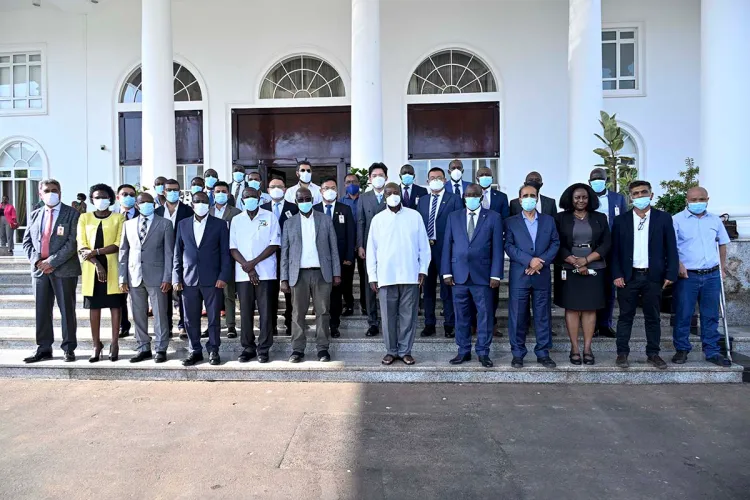President Yoweri Kaguta Museveni met with UMA officials today at the State House in Entebbe. People who make things in Uganda are all part of UMA.
During the meeting, the President told the officials that they needed to find ways to bring the country’s textile industry back to life because it was a key driver of economic growth.
President Museveni stressed how important it was to protect and grow the textile industry in Uganda.
He said, “We need to find the best ways to keep foreign textiles out and boost our own production.” He pointed to recent steps taken to encourage local manufacturing, such as taxing textile imports.
“Please tell me what you think about the small fight we’ve been having with importers.” When the government woke up, they put a tax on textiles based on a percentage of the weight in kilograms. This is to keep foreign textiles from coming in.
The head of UMA’s board, Mr. Deo Kayemba, thanked President Museveni for continuing to back local manufacturing. Value addition is only done to 10% of Uganda’s cotton right now, but UMA wants to make that number a lot higher.
“First and foremost, UMA is strongly ready to support primary industries like the textile we are talking about. When you talk of textiles, Uganda is producing 150,000 bales of cotton and out of this, only 10 per cent gets value addition and export. The 90 per cent is left as cotton. From the 50 per cent where we add value, we earn $50 million, so, if we took the 90 per cent and added value to it, this industry would transform this country,” he said.
Mr Kayemba further noted that the manufacturing sector employs around 1 million people directly and 4.5 million indirectly, thus contributing significantly to the economy. He added that manufacturers consume 70 per cent of Uganda’s electricity, with a peak demand of 1,000 megawatts.
Mr. Kayemba shared UMA’s commitment to advancing Uganda’s economic goals, including the ambitious target of expanding the economy from USD 55 billion to USD 500 billion.
The UMA Board chair also expressed confidence that with government support, the manufacturing sector, particularly textiles, can be a cornerstone of Uganda’s economic growth.
“UMA aims to significantly boost local production, create jobs, and enhance Uganda’s global competitiveness in the textile market,” he noted.
The meeting was also attended by the Minister of Finance, Planning and Economic Development, Hon. Matia Kasaija, the Minister of Trade, Industry and Cooperatives, Hon. Mwebesa Francis, the Minister of State for Industry, Hon. David Bahati, the Minister of State for Trade, Gen. Wilson Mbasu Mbadi, the Minister of State for Investment and Privatisation, Hon. Evelyn Anite, Uganda Revenue Authority (URA) Commissioner General, Mr. John Musinguzi, among others.






